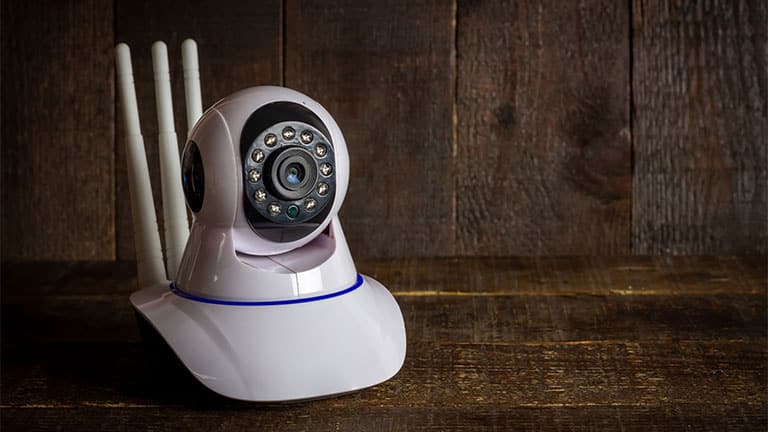Home security cameras have become increasingly popular in recent years as a way to deter burglars and keep an eye on one’s home while away. While wired security cameras are still used by some, wireless home security cameras are a more popular choice for many homeowners. And it’s no wonder – they offer a convenient and easy way to keep an eye on your home, whether you’re there or not.
How do these wireless home security camera work? We’ll take a look at the working principle of wireless home security cameras and how they can benefit your home security.
Wireless Home Security Cameras
Wireless home security cameras work by transmitting a signal from the camera to a receiver, the signal is encoded so that it can be transmitted wirelessly. The receiver decodes the signal and is then connected to a monitoring system or DVR or the cloud storage directly.
The signal is generally transmitted via radio waves. This type of system is convenient because it doesn’t require any wiring or drilling, which means it can be installed quickly and easily. Plus, it’s easy to expand your system if you need to.
Wired vs Wireless Home Security Cameras
Wired security cameras are hardwired to your security system, and your property’s electrical system, so they require professional installation. Wired security cameras can be tricky to install and move around, and can be easily damaged if someone tries to tamper with them. But, they are also generally more reliable than wireless cameras, since there is no risk of signal interference, and often have better image quality.
On the other hand, wireless security cameras are easier to install than wired cameras, and they offer the added benefit of being able to be moved around easily. They are also more affordable than wired cameras. However, wireless cameras are at risk of signal interference sometimes, and image/video quality depends on the strength of Wi-Fi.
Benefits of Wireless Home Security Cameras Over Wired Cameras
While both wired and wireless security cameras have their own set of benefits, there are several reasons why a wireless camera may be the better choice for your home or business.
- Place anywhere: Since there is no need to run wires from the camera to a power source, you can put your wireless camera anywhere you want, without having to worry about where you’re going to put the cords.
- Ease of installation: There is no need to run wires through your walls or ceiling. Many wireless cameras come with mounting hardware and instructions, so you can get your camera up and running in no time.
- Portable and Flexibility: Wireless security cameras also offer a great deal of flexibility when it comes to monitoring your property. You can connect multiple cameras to a single wireless system. They are also more mobile, so if you move, you can take them with you.
- Cost-effectiveness: Since radio waves are used to operate wireless security systems instead of wires and cables, it is less expensive to use. It results in reduced infrastructure costs, equipment costs, and installation costs.
To access wireless home security camera remotely, a minimum internet upload speed of 5Mbps is required. So checking on the signal strength of your internet/Wi-Fi system is very important before installing wireless home security cameras.


